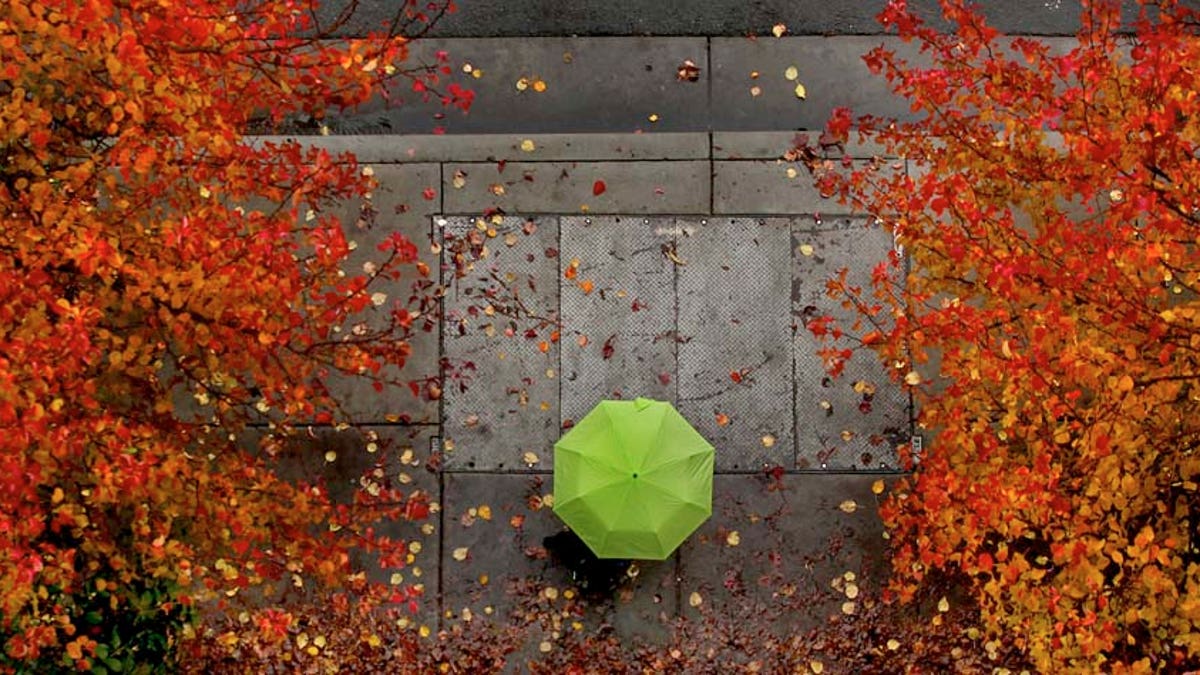
First Street in Santa Rosa, Calif. (AP Photo/The Press Democrat, Kent Porter) (AP)
Spring isn't the only rough time for allergy-sufferers. Here's how you can avoid allergy symptoms in the fall season as well.
1. Mold spores surge during early fall and it is prudent to check areas of your home that may contribute to mold or mildew growth. Always try and replace water damaged carpets and make sure faucets don't leak.
2. Don't turn your home into a "greenhouse." Make sure you keep the indoor humidity (how much moisture is in the air) level at 50 percent or less, to avoid growth of molds and activation of house dust mites, if you have allergies. In below ground rooms, such as basements, mildew can pose a problem, and in that case, a dehumidifier can often help.
3. Know the pros and cons of a home humidifier. You can purchase a room hygrometer for less than $10 to keep indoor humidity levels at the right amount (50 percent or less), and help reduce allergy symptoms. Also watch for moisture raising effects that a large number of plants may have in your home, particularly in the bedroom.
4. Cover your pillows and bedding with allergen-proof encasings if you are sensitive to these indoor allergens. Although I would not advocate an untidy home, a recent study from UK reported that "not making your bed during the daytime" was actually associated with a reduced amount of living dust mites, within the bed and bedding (there are on average 2 million dust mites in a mattress).
5. Continue to keep an eye on the pollen and mold counts and plan outdoor activities wisely. Pollens surge on dry, windy days and drop quickly on wet, rainy and windless days. Monitor your local pollen count at www.aaaai.org/nab.
6. Keep your air conditioner working properly - even during the fall season, and don't forget to change or clean washable A/C filters. If you have a central A/C or furnace, install a high efficiency protective filter (HEPA type) and change every season.
7. Your love life may actually suffer as a result of allergies that not well-controlled. A recent study found more than 80 percent of those surveyed admitted to a negative impact on sex life as well as sleep and daytime alertness.
8. Pre-treat your allergy symptoms with anti-allergy medications even before you feel the familiar sneezing, stuffiness and itchiness of the eyes, nose and throat. Plan ahead, get simple allergy skin tests, to know when to expect those pesky allergy symptoms, for more relief tips go to www.allergyandasthmarelief.org.
9. Avoid indoor air irritants such as scented cleaning products, air-fresheners, incense, potpourri as well as wood burning stoves if you have indoor allergies and/or asthma. Make sure you have adequate ventilation in your home.
10. The best type of flooring for allergy sufferers are wood floors, linoleum and tile. If you have carpeted floors, use a HEPA type vacuum cleaner.
Stay tuned for more allergy survival tips!
Dr. Clifford W. Bassett is an assistant clinical professor of medicine at the Long Island College Hospital and on the faculty of NYU School of Medicine. He is the current chair for public education committee of the American Academy of Allergy, Asthma and Immunology. No information in this blog is intended as medical advice to any reader or intended to diagnose or treat any medical condition.
